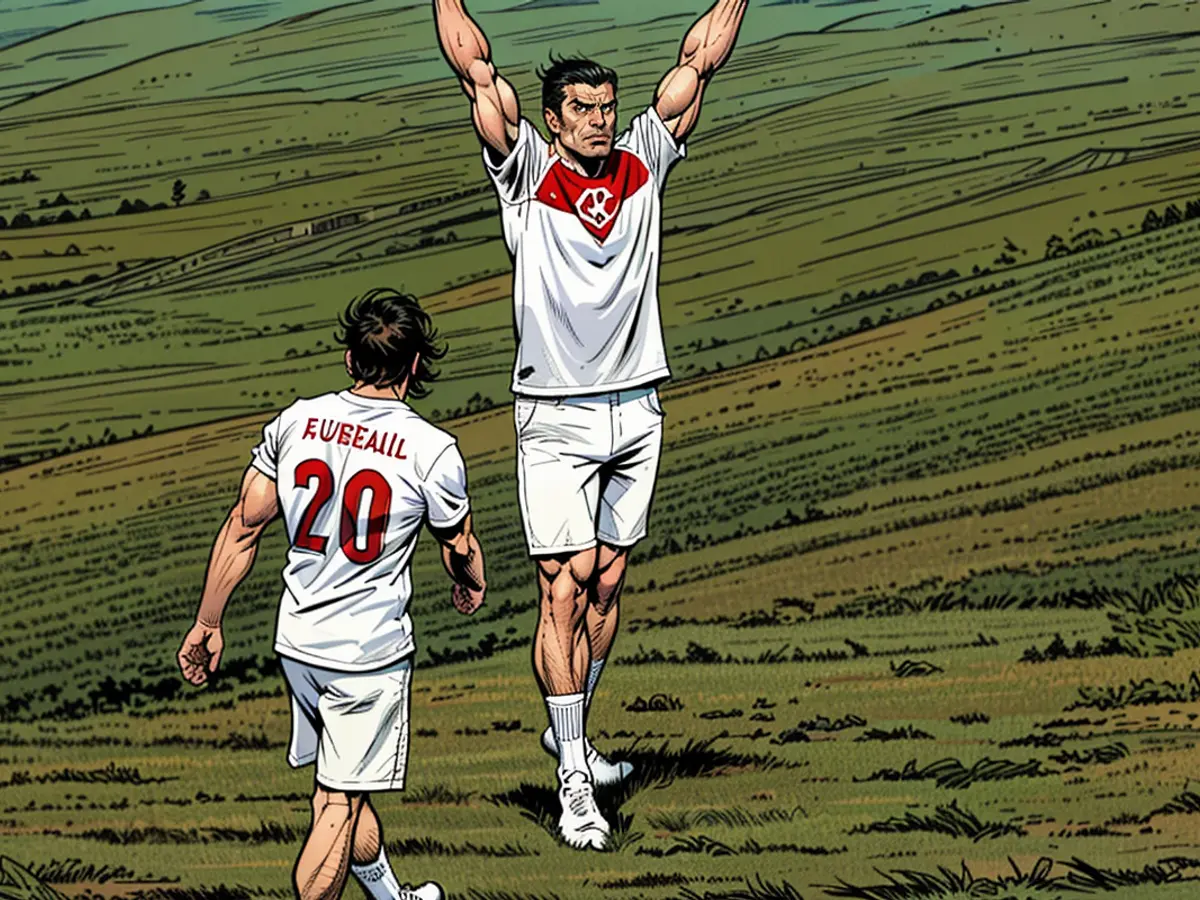European Football Championship - UEFA punishes Demiral: two-match ban after wolf salute
For Merih Demiral, the wolf gesture shown during the celebrations against Austria had serious consequences. The UEFA suspended the defender of the Turkish football national team for two games. Therefore, the 26-year-old will miss the EM-Quarterfinal in Berlin against the Netherlands (21.00 hours/RTL and Magenta TV) and a potential semifinal. For the match against Oranje, the visit of the Turkish President Recep Tayyip Erdogan to the Olympiastadion is expected.
Demiral had "violated the basic principles of conduct, breached the fundamental rules of good behavior, used sporting events for non-sporting demonstrations, and brought football into disrepute," explained the European Football Union (UEFA) regarding its decision.
Previously, "Bild" had reported on the two-match ban. The Turkish Football Federation initially dismissed this as a false report, as the deadline for submitting defense documents had not yet passed.
What had happened?
The 26-year-old Demiral formed the symbol and hand gesture of the "Grey Wolves" after scoring his second goal against Austria in Leipzig, causing great controversy. In Germany, the "Grey Wolves" are referred to as the supporters of the right-wing extremist "Ulkuçu-Movement," which is monitored by the Constitutional Protection Agency. In Turkey, the ultranationalist MHP is their political representation and alliance partner of the Islamo-conservative AKP of President Erdogan.
Due to the uproar over the gesture, there had also been intense political debate in recent days. The Turkish Foreign Ministry considered the UEFA investigation against Demiral unacceptable.
Not every person who displays the wolf gesture can be labeled as right-wing extremist. The wolf sign is not banned in Germany, and the reactions of German authorities are "xenophobic."
Ultras call on fans to make the controversial wolf gesture
In the context of growing nationalism, representatives of the political center have recently used the wolf gesture to appeal to voters from nationalist circles.
Turkish football ultras have called on fans in the Berlin Olympiastadion to make the controversial wolf gesture during the quarterfinal match of their team against the Netherlands. All supporters on the tribune were invited to make the gesture during the national anthem, according to a call on the platform X.
- Despite the controversy surrounding Merih Demiral's wolf gesture during the celebration of his goal against Austria, Turkish football ultras are encouraging fans to replicate the gesture at the upcoming EM-Quarterfinal against the Netherlands in Berlin.
- The controversial wolf gesture, which Demiral displayed after scoring against Austria, is a symbol of the Grey Wolves, a group associated with right-wing extremism in Germany.
- The Turkish Football Federation initially dismissed the reports of a two-game ban for Demiral, citing that the deadline for submitting defense documents had not passed yet.
- Despite the controversy, the Turkish President Recep Tayyip Erdogan is expected to visit the Olympiastadion in Berlin for the EM-Quarterfinal match between Turkey and the Netherlands.
- Merih Demiral's suspension from the Turkish national soccer team for two games due to the controversial wolf gesture means he will miss both the quarterfinal match against the Netherlands and a potential semifinal game.
- The European Football Union (UEFA) suspended Demiral for violating the basic principles of conduct, breaching the fundamental rules of good behavior, and bringing football into disrepute.
- The decision to suspend Demiral for two games in the European Football Championship was met with intense political debate in recent days, with the Turkish Foreign Ministry considering the investigation against the player as unacceptable.
- The wolf gesture is not necessarily a sign of right-wing extremism, and not every individual who displays it can be labeled as such, according to some critics.
- The German government has been criticized for its reaction to the wolf gesture, with some claiming their response is "xenophobic" and unfair to those who display it.
- The controversy surrounding the wolf gesture and its political implications continues to dominate headlines in both Turkey and Germany as the European Football Championship progresses, with Turkey facing the Netherlands in the quarterfinals.







